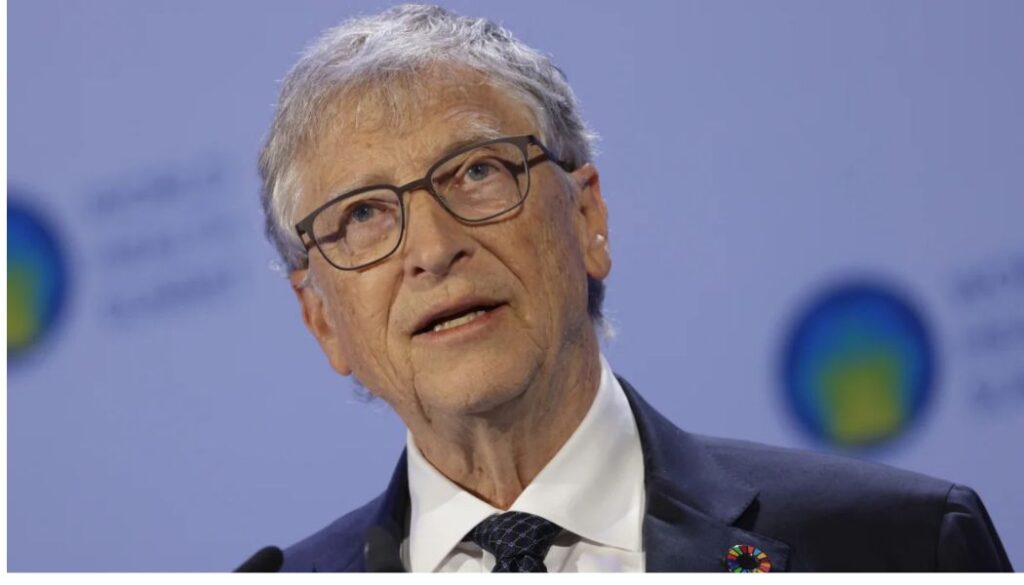Bill Gates plans to close his foundation, give away nearly all of his wealth

Bill Gates plans to close his foundation, give away nearly all of his wealth
Bill Gates plans to give away nearly all of his personal wealth and shutter the Gates Foundation within 20 years, the billionaire announced in a blog post on Thursday.
“People will say a lot of things about me when I die, but I am determined that ‘he died rich’ will not be one of them,” wrote Gates, 69. “There are too many urgent problems to solve for me to hold onto resources that could be used to help people.”
The Microsoft co-founder, whose net worth Bloomberg currently estimates at $168 billion, has pledged for years to give away most of his wealth to his philanthropic foundation.
His eventual goal is to drop “off of the list of the world’s richest people,” he wrote in a social media post in July 2022.
Now, Gates has set a specific timeline for disbursing his fortune: The Gates Foundation is set to close its doors on December 31, 2045.
Since the Foundation’s launch in 2000, it has contributed more than $100 billion to global causes — particularly working to eradicate diseases and poverty, address climate change and expand access to healthcare and education.
Gates estimates the Foundation will be able to double that total, and hand out another $200 million between now and 2045, depending on factors such as inflation and market performance, he wrote. He plans to increase its annual budget from $6 billion to $9 billion.
While Gates is “hopeful” the Foundation can meet those goals, he’s also realistic: “None of this progress is possible without partnership from governments,” he wrote. His announcement comes at a time when world governments, particularly the U.S., have been slashing their global aid budgets “by tens of billions of dollars,” he noted.
Gates expressed concern that philanthropic organizations like his won’t be able to fill the void in global aid left by recent government cuts.
“No philanthropic organization — even one the size of the Gates Foundation — can make up the gulf in funding that’s emerging right now,” he wrote. “It’s unclear whether the world’s richest countries will continue to stand up for its poorest people.”
Gates described the influences in his life that shaped his commitment to philanthropy, starting with his mother, Mary Gates, who died in 1994. She was a staunch believer in the idea that “to whom much is given much is expected,” Gates wrote.
After Microsoft became successful and Gates became, for a time, the wealthiest person in the world, his mother reminded him that he “was just a steward of any wealth” he accumulated, and that he had a moral and societal obligation to give back, he wrote. Gates’ father shared the same view and was co-chair of the Gates Foundation until his death in 2020.
Gates’ stance on philanthropy was also influenced by longtime friend and fellow billionaire Warren Buffett, who has already donated tens of billions of dollars to charities and has tasked his children with giving away 99% of his remaining wealth after he dies. Buffett “remains the ultimate model of generosity,” Gates wrote. “He was the first one who introduced me to the idea of giving everything away.”
I have no intention to take over county government functions – Ruto
Prof. Bitange Ndemo declines appointment as UoN Vice Chancellor
Safaricom posts Ksh69.8 billion net profit
2 women killed, several injured after quarry collapses
Ford Foundation appoints Kenyan as regional director
Ford Foundation appoints Kenyan as regional director
Pope Leo XIV; USA Cardinal Robert Prevost elected new pope
Together with Buffett, Gates and now-ex-wife Melinda French Gates co-founded the Giving Pledge in 2010. Since then, more than 240 billionaires have signed it, committing to give away the bulk of their fortunes in their lifetimes.
In his post, Gates also cited the influence of Gilded Age steel tycoon Andrew Carnegie, whose 1889 essay “The Gospel of Wealth” is considered a model for modern philanthropy. Reading that essay decades ago, Gates said that he was struck by the line “the man who dies thus rich dies disgraced.”
“I have spent a lot of time thinking about that quote lately,” wrote Gates, adding that it influenced his decision to move more quickly with his donations. “I hope other wealthy people consider how much they can accelerate progress for the world’s poorest if they increased the pace and scale of their giving, because it is such a profoundly impactful way to give back to society.”
Gates is “by nature an optimistic person” who expects many global conditions to improve in the coming decades, due largely to advances in technology and healthcare, he told The New York Times on Thursday,. At least some of that progress, he said , could be spurred by the rapid scaling of artificial intelligence.
“I think it’s objective to say to you that things will be better in the next 20 years,” said Gates.
He noted, though, that he’d still be inclined toward philanthropy if he didn’t feel optimistic.
“Let’s say somebody convinced me otherwise,” Gates said. “What am I going to do? Just go buy a bunch of boats or something? Go gamble? This money should go back to society in the way that it has the best chance of causing something positive to happen.”
Court dismisses jurisdiction application by four suspects in murder of MP Charles Were
Government issues warning to Kenyans over South Korea job offers
The intention is to rig 2027 elections – Kalonzo on Ruto IEBC nominees
Al-Shabaab militant killed, others arrested while planting IEDs in Garissa
KRA records 6.1% growth as it surpasses Ksh2 trillion in revenue collection
UDA opens portal for elections ahead of deadline
Ruto nominates Erastus Edung Ethekon as IEBC Chairperson
Follow us







